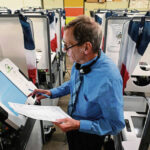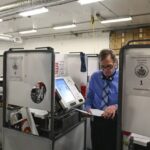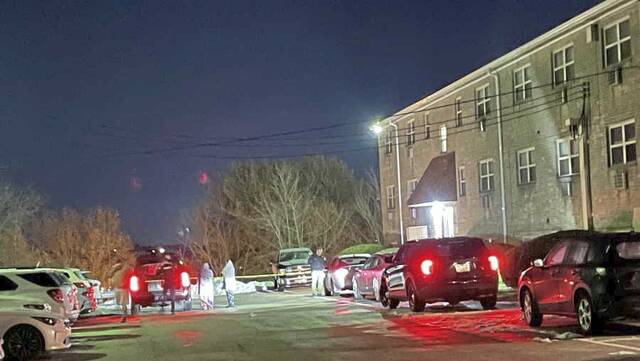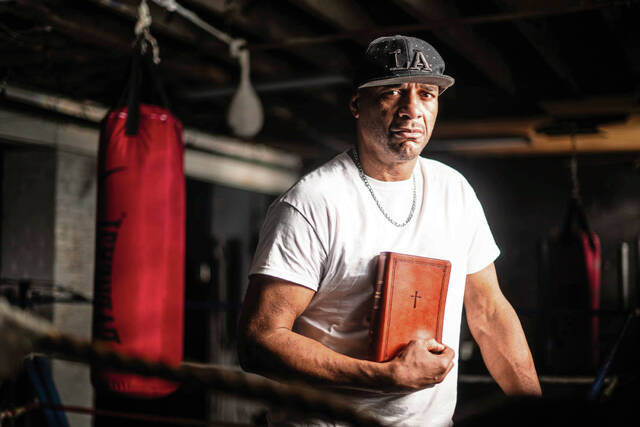More than 19,000 ballots are being cast and counted this week in Westmoreland County.
The date of Pennsylvania’s primary election hasn’t been moved up. The unofficial test ballots are being cast and counted to ensure the accuracy of the county’s voting machines in advance of the April 23 primary.
“At the end of the week we’ll see if (the ballots) are accurately recorded. If not, we start all over again,” said Greg McCloskey, director of the Westmoreland County Election Bureau.
In addition to testing the accuracy of the county’s nearly 900 voting machines, the tests also will determine whether the software on the touch-screen computers works properly and recognize if too many or too few votes get cast on each ballot.
Such testing might be standard procedure — all Pennsylvania counties will perform it in the run up to the primary. But after the tumult of the last presidential election, marked by baseless claims of widespread fraud and failed efforts to overturn results, elections departments across the country are determined to get things right and be transparent in doing so this time around.
In Westmoreland County, people can watch this week’s testing as it is conducted at the elections warehouse in Greensburg.
Voting officials have long maintained the machines used throughout Pennsylvania are safe and secure. Westmoreland County’s machines have been in use since the 2020 primary.
“These tests happen before every election in every Pennsylvania county to ensure our voting equipment is working as it should be, that our votes are aggregated and tabulated correctly, that voting system software and firmware is working correctly, that ballots are programmed properly, and that all of the systems’ configurations meet federal and state certification standards,” said Beth Schwanke, executive director of the University of Pittsburgh’s Institute for Cyber Law, Police and Security.
Schwanke served on a commission formed to investigate election security in response to reports that Russian operatives attempted to hack into voting systems in various states across the country, including Pennsylvania, in advance of the 2016 Presidential election.
The commission in 2019 recommended a series of changes, including requiring Pennsylvania counties to replace their outdated voting machines with systems that produced paper ballots that can be audited to ensure accurate results.
The $7.1 million system bought four years ago in Westmoreland County allows voters to make their selections using a touch-screen computer and confirm their selections on a printed-out paper ballot. Voters then manually insert their completed ballots into a digital scanner that records the votes and stores ballots. Elections officials have the ability to compare the digitally recorded votes to the paper ballots.
Schwanke said enacted precautions have made elections secure in Pennsylvania.
“Everyone should be confident that our elections have multilayered defenses and security protocols, from voter registration databases all the way through tabulation and then post-election audits. Layers of security are built into our election process,” Schwanke said.
The April primary will be the first election in Westmoreland County since commissioners last fall approved a $46,000 project to upgrade the firmware used to operate the voting machines. The update, programmed by Elections Systems and Software of Nebraska, rewrote a section of the voting machine’s operating software to eliminate small boxes that appeared above candidate’s names on the ballot.
Those boxes, which were nothing more than a design aesthetic, became problematic and raised calibration concerns among voters, McCloskey said.
The problem, according to election officials, surfaced when voters attempted to record votes by depressing the on-screen box rather than a candidate’s name.
McCloskey said testing found there were no issues with votes being erroneously recorded. Elections officials suspected voters were touching the wrong location on the computer screen as they attempted to place a check mark in the box that appeared above a candidate’s name.
“People didn’t need to touch the box,” McCloskey said.

















